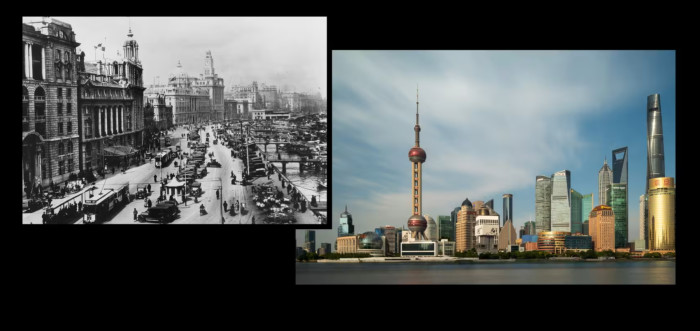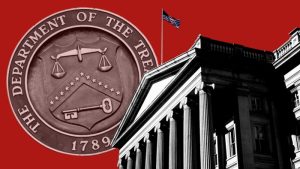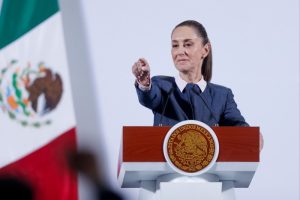Biden says Israel and Lebanon accept ceasefire deal

This article is an on-site version of our FirstFT newsletter. Subscribers can sign up to our Asia, Europe/Africa or Americas edition to receive the newsletter every weekday. Explore all of our newsletters here
In today’s newsletter:
-
An Israel-Lebanon ceasefire deal
-
Shanghai’s global finance ambitions falter
-
Japanese PM’s portfolio outpaces stock benchmark
Good morning. Israeli and Lebanese leaders have accepted a US-brokered ceasefire deal, President Joe Biden said yesterday, raising hopes of an end to the year-long hostilities between Israel’s forces and Hizbollah.
Speaking from the White House, Biden said the deal would take effect today at 04.00 local time in Lebanon.
Israel’s security cabinet voted to approve the plan last night, and it must also be approved by Lebanon’s caretaker government.
“Under the deal reached today . . . the fighting across the Lebanese-Israeli border will end,” Biden said. “This is designed to be a permanent cessation of hostilities.”
Under the terms of the deal, Israel’s forces will gradually withdraw from Lebanon over a period of 60 days, and be replaced by the Lebanese army. Hizbollah, the Lebanese militant group, will be barred from rebuilding its infrastructure in southern parts of the country. Here are more details of the agreement.
-
Global Insight: The ceasefire between Israel and Hizbollah is likely to be a tenuous peace — a band aid that could come unstuck at any moment, writes Middle East editor Andrew England.
Here’s what else we’re keeping tabs on today:
-
Economic data: Chinese industrial profits and Australian inflation figures are due.
-
Monetary policy: New Zealand and Sri Lanka announce interest rate decisions.
-
Indonesia: Regional elections will be held today.
Five more top stories
1. A North Korean general was injured and several officers sent by Pyongyang to Russia’s Kursk region were killed last week when Ukraine launched British-supplied Storm Shadow missiles at a Russian command centre, according to a Ukrainian official. The strike was one of “several” that have targeted the North Koreans in Kursk over the past week, the official said.
2. Mexico’s president Claudia Sheinbaum hinted at retaliation over US president-elect Donald Trump’s proposed tariffs on her nation’s exports yesterday as the peso slid against the dollar. Trump vowed on Monday night to impose tariffs of 25 per cent on all imports from Canada and Mexico, and an extra 10 per cent on Chinese goods, accusing the countries of permitting illegal migration and drug trafficking. Here’s more on the reaction to Trump’s tariff threat.
-
How to deal with Trump’s tariff threats: Canada, Mexico and China have options to avoid a trade war, writes Alan Beattie.
3. Thousands of supporters loyal to jailed former Pakistan prime minister Imran Khan flooded into the capital Islamabad, defying barricades, tear gas and rubber bullets to call for his release and the dissolution of the military-backed government. Protesters yesterday reached a junction just outside the secure zone housing parliament and the prime minister’s office before being pushed back by the army.
4. Apple is struggling to roll out AI features for iPhones in China, with a top official warning of a “difficult and long process” for foreign companies to win approval unless they partner with local groups. Apple chief Tim Cook arrived in China on Monday for his third visit of the year as the company tries to bring its Apple Intelligence to devices sold in the country.
-
More China news: Sweden’s prime minister has urged a Chinese ship linked to the cutting of two cables to move into Swedish waters, as the country steps up its investigation of the potential incident of sabotage in the Baltic Sea.
5. Sri Lanka has launched an offer for investors to swap $12.5bn of dollar bonds into new reduced debts, in a deal that is expected to end the south Asian nation’s first ever external default. The Sri Lankan government said yesterday that investors have until December 12 to vote on a proposal that would bring the two-year restructuring saga to a close.
The Big Read

Today’s Big Read tells the story of how Shanghai’s ambition to be “the future of finance” fell apart amid a growing rift between Beijing and Washington and an inward shift across Chinese politics.
We’re also reading . . .
-
Ishiba’s investing prowess: Japan’s prime minister may be struggling as a politician, but as an investor he is a standout who has outperformed Japan’s stock benchmark in recent years.
-
‘Green jobs’ bonanza? The public doesn’t buy the idea of a green industrial revolution because they know transitions are hard. It’s time politicians learnt so too, writes Sarah O’Connor.
-
Angela Merkel: There are few mea culpas in the former German chancellor’s autobiography, Freedom, writes Guy Chazan, though she does not pull her punches when it comes to Trump and Putin.
Chart of the day
Jefferies’ relationship with Adani Group helped propel the New York-based bank’s rapid expansion in India, where in a few years it has gone from being a small player to making more money in investment banking fees than any other international lender. But recent US corruption charges against the group’s billionaire head Gautam Adani has put Jefferies in a potentially tricky position.

Take a break from the news
Sri Lanka’s bar scene is on the rise, drinks expert Alice Lascelles writes for HTSI. Bartenders are whipping up cocktails using local ingredients from rambutan and curry leaves to jasmine, ginger and Ceylon Orange Pekoe tea.

#Biden #Israel #Lebanon #accept #ceasefire #deal






